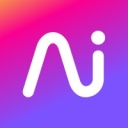OpenPhone vs Dialpad: Choosing the best VoIP solution for your startup
- 01OpenPhone vs Dialpad: overview
- 02What's the difference between OpenPhone and Dialpad?
- 03OpenPhone pros and cons
- 04Dialpad pros and cons
- 05OpenPhone compared to Dialpad
- 06Dialpad compared to OpenPhone
- 07Features comparison
- 08OpenPhone vs Dialpad: Which is the best for your business?
- 09Promotions on Call Centers software
- 10Alternatives to OpenPhone & Dialpad
Save up to $792 on OpenPhone
Save up to $792 on OpenPhone
In today's fast-paced business environment, having a reliable and efficient business phone system is crucial for maintaining seamless communication with clients and within your organization. OpenPhone and Dialpad emerge as two leading contenders in this domain, each offering a unique set of features tailored to various business needs.
As we delve deeper into the comparison of OpenPhone vs Dialpad, we will explore the key features, pricing structures, customer support services, and overall user experiences provided by each platform. Understanding these differences will help you make an informed decision on which VoIP solution best aligns with your organization's communication needs. Let's take a closer look at what each platform has to offer and how they stand out in the competitive landscape of business phone systems.
OpenPhone vs Dialpad: overview
OpenPhone and Dialpad are two prominent figures in the realm of business communication platforms, each providing distinct advantages to cater to varying organizational needs.
OpenPhone distinguishes itself with its intuitive interface and emphasis on simplicity, making it particularly appealing to small businesses and startups that require an easy-to-navigate phone system without the complexities often associated with advanced communication platforms. Dialpad, in contrast, shines in its integration of sophisticated AI technology to enhance both internal and external communication. It's a solution that scales well for businesses of any size, offering a broad suite of features that includes voice intelligence, real-time transcription, and advanced analytics.
When choosing between OpenPhone and Dialpad, it's crucial to assess the specific communication requirements of your business. If your priority lies in obtaining a straightforward and accessible phone system that covers all the basic needs of a growing business, OpenPhone may present the ideal solution. Its simplicity does not compromise its effectiveness, making it a suitable choice for those looking to enhance their communication channels without unnecessary complexity.
What's the difference between OpenPhone and Dialpad?


OpenPhone and Dialpad are both advanced VoIP (Voice over Internet Protocol) platforms designed to enhance business communication, but they cater to different needs and preferences through their distinctive features and functionalities. The core difference lies in their targeted user base and the depth of features they offer.
OpenPhone is tailored towards small businesses and startups looking for an intuitive, straightforward solution to their communication needs. It emphasizes ease of use, with a clean interface and essential features such as voicemail transcriptions, business texting, customizable business hours, and multi-user support. OpenPhone is designed to be effortlessly integrated into the daily workflows of smaller teams, offering simplicity without sacrificing the quality of communication. It's the ideal choice for businesses that need a reliable phone system without the complexities and advanced functionalities that larger organizations might require.
Dialpad, on the other hand, offers a comprehensive suite of features that cater to businesses of all sizes, including larger enterprises. It integrates AI technology to provide insights into call content, real-time transcription, and voice analytics. This platform is designed not just for voice communication but also as a unified communications as a service (UCaaS) solution, offering video conferencing, messaging, and even contact center capabilities. Dialpad's focus on AI and machine learning tools positions it as a more advanced option for businesses looking to leverage technology to improve customer interactions and internal communication efficiency.
Another significant difference between the two platforms is their approach to scalability and integration. Dialpad provides a wide range of integrations with other business tools, including CRM systems, productivity apps, and customer support software, making it a versatile option for organizations that use a variety of applications. OpenPhone, while offering some integrations, focuses more on providing a streamlined, focused service that covers the fundamental needs of managing business calls and messaging.
In summary, when comparing OpenPhone to Dialpad, the decision largely depends on the size of your business, the complexity of your communication needs, and the level of integration and advanced features you require. OpenPhone is best suited for smaller businesses that value simplicity and ease of use, while Dialpad offers a robust solution for larger organizations or those that prioritize advanced features, AI integration, and scalability.
20% off your first 12 months on OpenPhone
Get 20% off your first 12 months on OpenPhone and up to $792 savings with Secret.
OpenPhone pros and cons
What are the advantages of OpenPhone?
- Flexibility: OpenPhone provides a flexible solution that allows users to make and receive calls from anywhere using their existing devices, including smartphones, tablets, and computers. This flexibility enables remote work and supports teams working from different locations.
- Easy setup: Setting up OpenPhone is straightforward and doesn't require any specialized hardware or technical expertise. Users can quickly configure their phone system and start making calls within minutes, which is especially beneficial for small businesses and startups with limited resources.
- Integration: OpenPhone integrates seamlessly with popular productivity tools and platforms such as Slack, HubSpot, and Zapier. This integration enables users to streamline their workflows, access important information during calls, and automate repetitive tasks, enhancing overall productivity and efficiency.
- Scalability: OpenPhone is scalable and can accommodate the needs of growing businesses. Users can easily add or remove phone lines as needed, without any disruption to their operations. This scalability ensures that businesses can adapt their communication infrastructure to match their evolving requirements without incurring significant costs.
- Affordability: Compared to traditional phone systems, OpenPhone offers cost-effective pricing plans with transparent pricing and no hidden fees. This affordability makes it an attractive option for small and medium-sized businesses looking to minimize their communication expenses while still enjoying robust features and functionality.
What are the disadvantages of OpenPhone?
- Limited international coverage: While OpenPhone offers international calling, the coverage may be limited compared to some other providers. Users operating in regions with less comprehensive coverage may encounter difficulties when trying to make or receive international calls.
- Reliance on internet connection: Since OpenPhone is a cloud-based service, it relies on a stable internet connection for optimal performance. In areas with poor internet connectivity or during network outages, users may experience disruptions in their phone service, which could impact business operations.
- Customization limitations: While OpenPhone offers a range of features and customization options, some users may find the level of customization limited compared to more advanced or customizable phone systems. Businesses with highly specific or unique requirements may require additional customization capabilities not offered by OpenPhone.
- Call quality: The quality of calls on OpenPhone may vary depending on factors such as internet connection stability and network congestion. In some cases, users may experience issues such as dropped calls or poor audio quality, particularly during peak usage times or in areas with unreliable internet infrastructure.
- Dependency on third-party integrations: While integrations with third-party apps can enhance productivity and workflow efficiency, businesses relying heavily on these integrations may face challenges if there are any disruptions or changes to the integrations. Additionally, businesses may need to manage multiple accounts and subscriptions for integrated services, which could add complexity to their operations.
Compare OpenPhone to other tools
Dialpad pros and cons
What are the advantages of Dialpad?
- Unified communication platform: Dialpad offers a unified platform for voice, video, and messaging, allowing users to consolidate their communication tools into a single interface. This integration enhances collaboration and productivity by providing seamless communication across various channels.
- Scalability: Dialpad is highly scalable and can accommodate the needs of businesses of all sizes, from small startups to large enterprises. Users can easily add or remove users, features, and phone lines as their business grows or changes, without requiring significant upfront investment or IT resources.
- Advanced features: Dialpad offers a wide range of advanced features, including call recording, voicemail transcription, automated attendants, and AI-powered analytics. These features enhance efficiency, streamline workflows, and provide valuable insights into communication patterns and customer interactions.
- Integration with business tools: Dialpad integrates seamlessly with popular business tools and platforms such as G Suite, Office 365, Salesforce, and Slack. This integration enables users to access important information, initiate calls, and manage contacts directly within their existing workflows, reducing context switching and enhancing productivity.
- Mobile accessibility: Dialpad offers robust mobile applications for iOS and Android devices, allowing users to stay connected and productive on the go. The mobile apps provide full access to Dialpad's features, including voice and video calls, messaging, and voicemail, enabling remote work and flexibility.
What are the disadvantages of Dialpad?
- Reliance on internet connection: Like other cloud-based communication platforms, Dialpad relies on a stable internet connection for optimal performance. In areas with poor internet connectivity or during network outages, users may experience disruptions in their communication services, impacting productivity and reliability.
- Cost: While Dialpad offers various pricing plans to suit different business needs, some users may find the cost of the service relatively high compared to alternative solutions. Businesses with tight budgets or specific cost constraints may need to carefully evaluate the pricing structure and features to determine if Dialpad is the right fit for their needs.
- Learning curve: Dialpad's extensive feature set and customization options may result in a steep learning curve for some users, especially those who are not familiar with cloud-based communication platforms or advanced telephony systems. Training and onboarding may be necessary to ensure users can effectively utilize all of Dialpad's features and capabilities.
- Limited international coverage: While Dialpad supports international calling, the coverage may be limited compared to some other providers. Users operating in regions with less comprehensive coverage may encounter difficulties when trying to make or receive international calls, impacting their ability to communicate with clients or colleagues abroad.
- Dependency on third-party integrations: While Dialpad offers integrations with various business tools and platforms, businesses relying heavily on these integrations may face challenges if there are any disruptions or changes to the integrations. Additionally, managing multiple integrations and subscriptions may add complexity to the overall communication infrastructure.
Compare Dialpad to other tools
OpenPhone compared to Dialpad
OpenPhone and Dialpad are both cloud-based business communication platforms offering a range of features for voice, video, and messaging. OpenPhone emphasizes flexibility with easy setup, integration capabilities, and scalability, making it suitable for diverse teams.
In contrast, Dialpad provides a unified communication platform with advanced features and seamless integration with business tools, catering to businesses of all sizes. Both platforms offer mobile accessibility but may face challenges with internet dependency and cost considerations. OpenPhone prioritizes affordability and customization, while Dialpad focuses on comprehensive features and scalability.
Is OpenPhone better than Dialpad?
Comparing OpenPhone to Dialpad involves more than just examining their surface-level features; it delves into the core of what businesses need for effective communication. OpenPhone shines in its ability to offer a straightforward, adaptable solution that appeals to startups and small businesses looking for cost-effective ways to manage communications. Its customization options allow for a tailored experience.
Dialpad, however, stands out for larger enterprises or those requiring a broad suite of advanced functionalities, integrating more deeply with an array of business applications.
What is OpenPhone best used for?
OpenPhone is best used for businesses and teams seeking a flexible and affordable cloud-based phone system. It suits startups, small businesses, and remote teams, enabling easy setup and integration with existing workflows. OpenPhone facilitates seamless communication with customers and team members through voice calls, messaging, and collaboration tools. Its scalability allows for growth without significant investment in hardware or infrastructure.
OpenPhone's customization options and transparent pricing make it ideal for businesses looking to tailor their communication solutions to their specific needs while keeping costs low. Overall, OpenPhone excels in providing accessible and versatile communication solutions for modern businesses.
Can OpenPhone replace Dialpad?
While both OpenPhone and Dialpad offer cloud-based communication solutions, whether OpenPhone can entirely replace Dialpad depends on specific business requirements. OpenPhone's focus on flexibility, affordability, and ease of use makes it an attractive option for startups, small businesses, and remote teams.
However, Dialpad offers a more comprehensive feature set, advanced integrations, and scalability suited for larger enterprises. While OpenPhone can effectively meet the needs of many businesses, those requiring extensive features and scalability may find Dialpad more suitable.
Is OpenPhone cheaper than Dialpad?
Determining whether OpenPhone’s pricing is cheaper than Dialpad involves assessing various factors such as business size, required features, and usage patterns. OpenPhone typically offers cost-effective pricing plans with transparent pricing and no hidden fees, making it appealing for small to medium-sized businesses seeking affordability.
In contrast, Dialpad may have a higher price point due to its comprehensive feature set and scalability, making it better suited for larger enterprises with more extensive communication needs.
Is there a better Call Centers software than OpenPhone?
While OpenPhone offers a flexible and affordable cloud-based phone system, it's essential to explore alternative communication software options to ensure you find the best fit for your specific needs.
Several noteworthy alternatives to OpenPhone include Dialpad, Grasshopper, RingCentral, CallHippo, and Google Voice.
The selection of the ideal communication software depends on your business's unique requirements, priorities, and objectives. If you prioritize affordability, ease of use, and integration capabilities, OpenPhone may be the perfect solution for your communication needs.
20% off your first 12 months on OpenPhone
Get 20% off your first 12 months on OpenPhone and up to $792 savings with Secret.
Dialpad compared to OpenPhone
Dialpad and OpenPhone are both cloud-based communication platforms offering voice, video, and messaging services. Dialpad boasts a comprehensive feature set, scalability, and seamless integration with business tools, making it suitable for businesses of all sizes. In contrast, OpenPhone emphasizes flexibility, affordability, and easy setup, catering to startups, small businesses, and remote teams.
While Dialpad offers advanced features and extensive integrations, OpenPhone prioritizes customization and transparent pricing. The choice between the two depends on specific business needs, with Dialpad excelling in comprehensive features and scalability, while OpenPhone shines in flexibility and affordability for modern businesses.
Is Dialpad better than OpenPhone?
When evaluating Dialpad against OpenPhone, it becomes apparent that the superiority of one over the other is not a matter of features alone but of alignment with business requirements. Dialpad's strength lies in its ability to offer a robust, all-encompassing communications solution, making it a preferred choice for larger organizations or those with complex communication needs. Its extensive integrations and advanced functionalities support a wide range of business processes, facilitating seamless operations.
On the other hand, OpenPhone's appeal to smaller enterprises and startups is clear, with its user-friendly approach, affordability, and the flexibility it offers.
What is Dialpad best used for?
Dialpad is best used for businesses seeking a comprehensive and scalable cloud-based communication solution. Ideal for enterprises of all sizes, Dialpad offers a unified platform for voice, video, and messaging, streamlining communication across various channels. With advanced features like call recording, voicemail transcription, and AI-powered analytics, Dialpad enhances productivity and collaboration within teams. Its seamless integration with popular business tools such as G Suite, Office 365, and Salesforce further enhances workflow efficiency.
Dialpad's mobile accessibility ensures connectivity on the go, making it suitable for modern businesses with remote or mobile workforces. Overall, Dialpad excels in providing a robust and versatile communication platform for diverse business needs.
Can Dialpad replace OpenPhone?
Determining whether Dialpad can entirely replace OpenPhone depends on specific business requirements. Dialpad offers a comprehensive and scalable cloud-based communication platform suitable for enterprises of all sizes. With advanced features, seamless integrations, and mobile accessibility, Dialpad provides a robust solution for diverse communication needs.
However, OpenPhone may be preferred for its flexibility, affordability, and ease of use, particularly for startups, small businesses, and remote teams. While Dialpad offers extensive capabilities, businesses seeking a simpler and more cost-effective communication solution may find OpenPhone better suited to their needs.
Is Dialpad cheaper than OpenPhone?
Determining whether Dialpad is cheaper than OpenPhone involves assessing various factors such as business size, required features, and usage patterns. Dialpad’s pricing typically offers scalable plans suited for businesses of all sizes, but its comprehensive feature set may come at a higher cost.
In contrast, OpenPhone emphasizes affordability with transparent pricing and customizable plans, making it an attractive option for startups and small businesses. However, businesses with extensive communication needs may find Dialpad's pricing justified for its advanced features and scalability.
Is there a better Call Centers software than Dialpad?
While Dialpad offers a comprehensive cloud-based communication platform, it's prudent to explore alternative communication software options to ensure you find the best fit for your specific needs.
Several noteworthy alternatives to Dialpad in the communication software arena include Zoom, RingCentral, GoToConnect, and Microsoft Teams.
The selection of the ideal communication software depends on your business's unique requirements, priorities, and objectives. If you prioritize scalability, advanced features, and seamless integrations, Dialpad may be the perfect solution for your communication needs.
Features comparison
Dialpad Excels with Extensive Integration Capabilities Over OpenPhone

When it comes to integrations, Dialpad stands out with its vast array of seamless connections to various business tools. Dialpad's extensive integration ecosystem encompasses popular CRM systems, productivity apps, and customer support platforms. For instance, it effortlessly syncs with Salesforce, G Suite, Office 365, Zendesk, and Slack, facilitating smooth communication across different channels. This interoperability allows businesses to streamline workflows and enhance productivity.
Conversely, while OpenPhone also offers integration capabilities, its range of supported applications may be more limited. This restriction could potentially hinder its functionality for businesses requiring a diverse integration landscape. Therefore, Dialpad's comprehensive integration possibilities give it a distinct advantage over OpenPhone in optimizing business operations.
OpenPhone Outperforms Dialpad in Streamlined Communication

While both tools offer seamless communication options, OpenPhone shines with its robust texting and calling capabilities seamlessly integrated within the app. For instance, users can initiate calls or send texts directly from within the OpenPhone interface, fostering smooth communication with clients and teams alike.
While Dialpad also offers voice, video, messaging, and meeting features, OpenPhone's focus on streamlined phone calls and texts provides a more tailored experience for users whose primary mode of communication revolves around these mediums. Therefore, for businesses prioritizing efficient phone calls and texts, OpenPhone offers a superior solution compared to the more generalized offerings of Dialpad.
OpenPhone and Dialpad are Equal at Offering International Calling Features

In terms of international reach, both OpenPhone and Dialpad offer seamless communication options, enabling users to call and text globally without concerns about exorbitant fees. For instance, users can effortlessly connect with clients, partners, or team members in any part of the world without incurring additional charges. This feature is particularly advantageous for businesses with international clientele or remote teams spanning across different countries.
Whether it's conducting business negotiations or collaborating on projects, both OpenPhone and Dialpad provide reliable and cost-effective communication solutions for enterprises operating on a global scale.
OpenPhone's Dedicated Business Numbers Outshine Dialpad's Virtual Phone System

OpenPhone distinguishes itself with its provision of dedicated business numbers, enabling users to maintain a clear separation between personal and professional communications without requiring a second phone. For instance, users can designate specific numbers for business calls and messages, ensuring professionalism and organization in their communication channels.
In contrast, while Dialpad offers a virtual phone system, it lacks the dedicated business numbers feature provided by OpenPhone. This makes OpenPhone the preferred choice for businesses seeking to uphold a distinct boundary between their work and personal communications, enhancing professionalism and efficiency in their operations.
Dialpad's AI-Powered Transcription Surpasses OpenPhone's Voicemail Transcription

Dialpad emerges as the frontrunner with its AI-powered transcription capabilities. Dialpad's advanced technology not only transcribes calls accurately but also generates detailed summaries highlighting key discussion points during the conversation. For example, it can identify action items, important decisions, and follow-up tasks discussed during the call, providing users with valuable insights at a glance.
While OpenPhone offers voicemail transcription, it lacks the depth and granularity provided by Dialpad's AI feature. Therefore, for businesses seeking comprehensive transcription services that go beyond mere transcribing, Dialpad offers a superior solution compared to OpenPhone's more basic offering.
Dialpad's Customizable Call Routing Surpasses OpenPhone's Shared Numbers

Dialpad takes the lead with its customizable call routing capabilities. Unlike OpenPhone's shared phone numbers, Dialpad offers sophisticated call routing features that automatically direct incoming calls to the appropriate person or department based on preset criteria.
For example, calls can be routed based on the caller's location, the time of day, or specific keywords mentioned during the call. This advanced functionality saves time and ensures that customers are swiftly connected with the assistance they require, enhancing overall customer satisfaction and efficiency. Therefore, for businesses prioritizing personalized call routing, Dialpad offers a superior solution compared to OpenPhone's shared numbers.
OpenPhone Leads with Intuitive Interface Over Dialpad's Complexity

When it comes to ease of use, OpenPhone emerges as the superior choice. Its user-friendly interface empowers even the least tech-savvy users to navigate effortlessly. For instance, OpenPhone's straightforward design allows users to set up new phone lines and manage contacts with minimal effort.
Conversely, Dialpad, though feature-rich, presents a steeper learning curve due to its complex interface. Users may spend more time grappling with the system's intricacies before harnessing its full potential. Hence, OpenPhone's simplicity and intuitive design make it a more accessible and manageable option, ensuring seamless communication for businesses of all sizes.
Subscribe to our newsletters.
No FOMO here. Stay up-to-date on all the latest deals and news with our monthly newsletter straight to your inbox like 123,000+ entrepreneurs (+ Get 10% off on on our Premium Membership!)
OpenPhone vs Dialpad: Which is the best for your business?
OpenPhone is the best tool for you if:
- You're a startup or small business looking for an affordable, flexible communication solution that can scale with your growth without breaking the bank.
- Customization and simplicity are at the top of your list, and you require a platform that can be easily tailored to fit the unique needs of your team.
- Seamless integration with other tools is not your primary concern, and you value a straightforward, user-friendly interface that doesn't require extensive IT support to manage.
- You prioritize clear, transparent pricing without the need for negotiating contracts or deciphering complex plans, ensuring you only pay for what you need.
- International calling and texting capabilities are essential for your operations, and you're looking for a cost-effective solution that supports global communication without hidden fees.
Dialpad is the best tool for you if:
- Your business demands a comprehensive suite of communication features, including advanced voice intelligence and seamless integration with a wide array of enterprise tools and software.
- Scalability and flexibility across multiple locations and departments are crucial, with the need for a unified platform that can grow and adapt to your evolving business needs.
- You value the integration of artificial intelligence to enhance communication, offering real-time transcriptions, call analytics, and coaching features that can improve team performance and customer satisfaction.
- Your organization prioritizes collaboration and requires a robust unified communications platform that supports voice, video, messaging, and meetings in one integrated system.
- Advanced security and compliance features are non-negotiable for your industry, necessitating a platform that provides enterprise-grade security measures to protect sensitive data and ensure regulatory compliance.
20% off your first 12 months on OpenPhone
Get 20% off your first 12 months on OpenPhone and up to $792 savings with Secret.
Alternatives to OpenPhone & Dialpad
Promotions on Call Centers software
Start saving on the best SaaS with Secret.
Secret has already helped tens of thousands of startups save millions on the best SaaS like OpenPhone, Dialpad & many more. Join Secret now to buy software the smart way.










